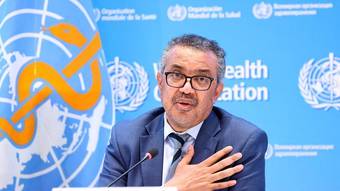
In the past few hours, at least two specialized hospitals in the Gaza Strip have stopped working and are on the verge of collapsing in service due to the lack of energy generated from fuel. Entries into the area have been banned since Israel imposed a blockade on Gaza, following the Hamas attacks on October 7.
The situation is currently affecting the main cancer hospital, according to the World Health Organization, and the Indonesian hospital, according to Al Arabiya Network, a communications group based in Riyadh, Saudi Arabia.
Tedros Adhanom, Director-General of the World Health Organization, announced, “We urgently appeal for support to save lives,” stressing that the cancer hospital in Gaza “is not currently functioning” due to “fuel shortages and recent air strikes in its vicinity.” Adhanom repeated dramatic calls to help victims in hospitals and warned that 14 out of 36 hospitals and health units in Gaza are currently out of service, in addition to two specialized centres. The rest will be loaded at more than 40% of their capacity.
The electricity generators stopped at the Indonesian Hospital in Gaza, on Wednesday evening (01), due to a lack of fuel. However, the area surrounding the health center is densely populated, mostly women and children, seeking shelter in the hope that the hospitals will be spared from the bombing.
The Israeli army published, through its social networks, a recording of a conversation that was said to have taken place between a representative of the Hamas movement and the Indonesian hospital administration. In the conversation monitored by Israeli intelligence, the hospital director and the head of the medical staff demand fuel supply, while the leader of the extremist group refuses this, and does not acknowledge the supposed higher order to help the hospital. The authenticity of the recording cannot be independently proven.
“This recorded conversation reveals Hamas’ exploitation of humanitarian resources,” the Israeli military announced. “They steal fuel and choose to keep everything for themselves,” he adds.
Israeli authorities have strictly prohibited the entry of fuel into Gaza through humanitarian aid because they consider the product to be used as a source of energy for underground life in the extremist group’s tunnels and as an input to power rockets and other weapons. They believe that Hamas has millions of liters of fuel in its stock.

“Proud explorer. Freelance social media expert. Problem solver. Gamer.”






